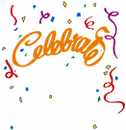We’ve had a lot of new activity at the Kids Open Dictionary this week, largely because of several posts others have written about it. New people have been coming to the site every day, adding words, creating glossaries, and helping making this a richer resource. Thanks to everyone who has contributed.
As with anything on the Internet, I suppose, we’ve also heard some criticisms. Some of these have not been surprising to me (such as the seemingly incessant debate on which license is most “open”); others have come out of left field.
The most unexpected to me has been the suggestion that already-available, print-based commercial dictionaries are more than adequate, and that an open dictionary is unneeded or somehow even dangerous. I so adamantly believe in the need for differentiation in education and the necessity of a mix-up culture for creating appropriate learning resources, that this is an anathema to me. The whole point of OER is to provide better learning resources.
Textbooks are incomprehensible to many students. Vocabulary is a stumbling block for many learners. It is all well and good to tell students to look up words in a dictionary (if they have one available). My experience as a teacher, though, is that unless a kid has a dictionary right there in-hand, they are unlikely to do so.
Context is everything. Research shows that having definitions linked directly to the reading material increases comprehension. We have seen this in classrooms with the interactive ebooks we have created. Providing students with linked glossaries has helped with reading comprehension and built student confidence and enthusiasm for reading.
Commercial dictionaries don’t provide teachers the opportunity to mix content to provide this kind of context and interactivity. Legally, their definitions cannot be copied and pasted into other materials or edited to suit the context at hand (though we know many teachers do that anyway for the benefit of their students). Beyond that, commercial dictionaries often have definitions that are written at a language level that is not accessible to kids. (We’ve already heard a few adults say that a kids dictionary would be a useful resource to them.) These are just a few of the reasons we’ve started this open dictionary.
Beyond all this, I guess I don’t understand criticizing something that is free, open, and motivated only by creating a resource to improve education. If you don’t like it, don’t use it. If you do, come write a definition or two. We know that kids, teachers, and learners around the world will benefit.

